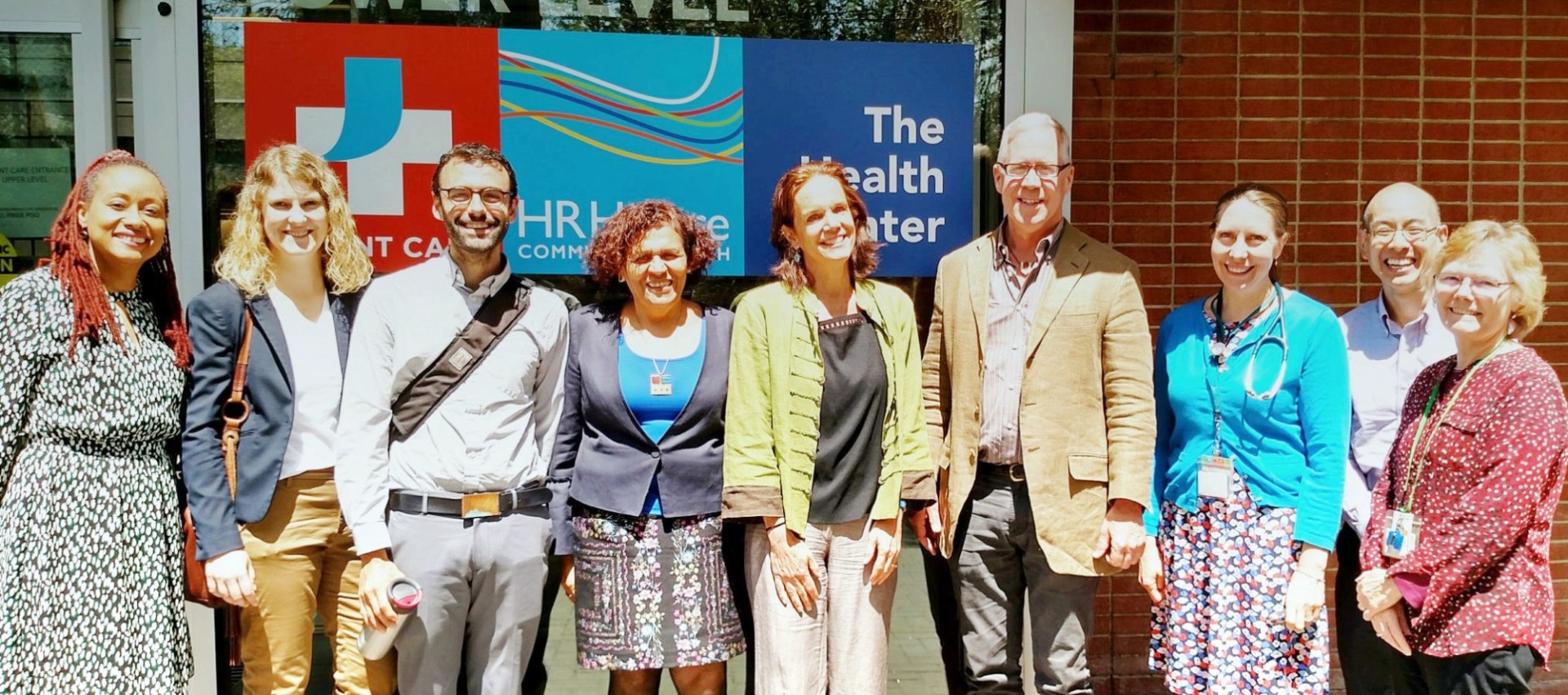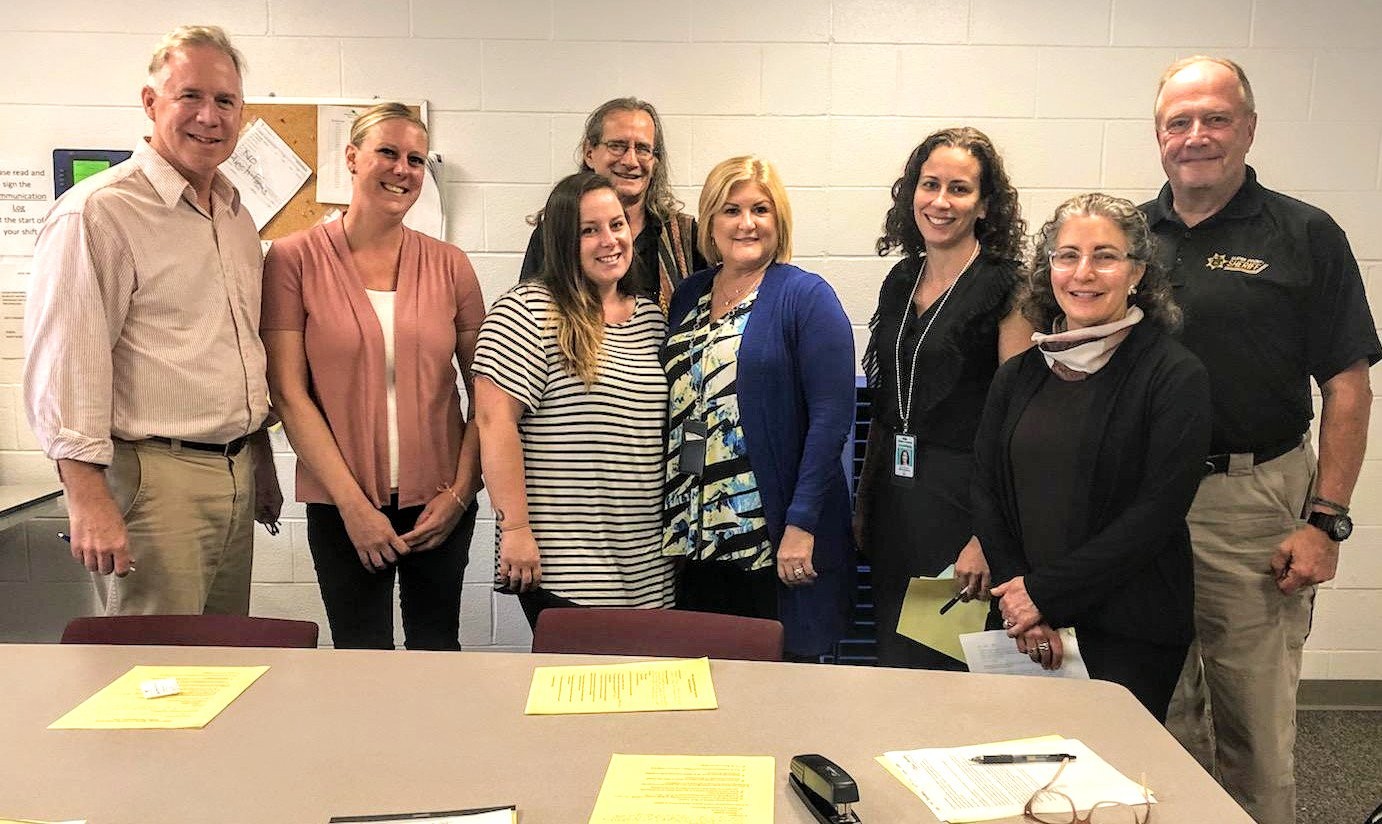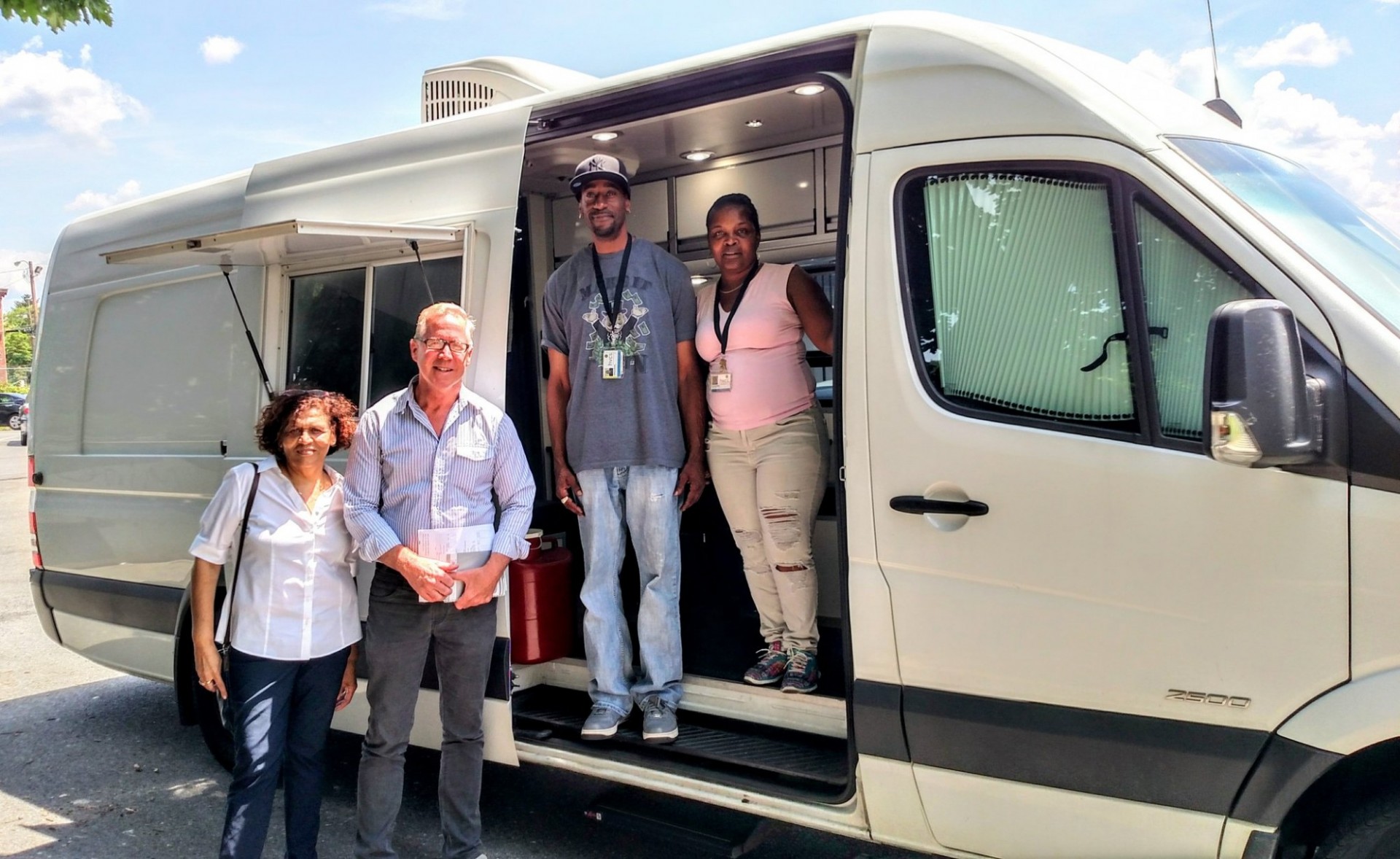The Social Intervention Group (SIG) -- Dr. Nabila El-Bassel and her colleagues Drs. Louisa Gilbert, Elwin Wu and Tim Hunt -- are excited to announce the creation of a cross-university multidisciplinary collaboration to bring different perspectives and approaches to address the opioid epidemic. Dr. El-Bassel, a leading expert on the opioid epidemic, recently assembled this group of scientists from different disciplines to address the opioid epidemic in New York State, which has the second highest increase in heroin and prescription opioid-related deaths.

Only a small percentage of people with opioid use disorders actually receive medication-assisted treatments, behavioral interventions, and naloxone to reverse overdose, despite the availability of treatments for substance use and overdose prevention. Even fewer people with opioid use disorders in the justice system receive adequate care for substance use disorders. This lack of access to effective pharmacological and behavioral treatment for opioid use across rural and suburban counties in New York State threatens to worsen the opioid crisis among these populations.
I am delighted that the Social Intervention Group at Columbia University School of Social Work is leading this important HEALing Communities Initiative. There is a critical need to develop innovative approaches and real world solutions for this epidemic that is plaguing U.S. communities large and small, beginning with the crisis in New York State.
--Dr. El-Bassel
The expertise includes addiction medicine, pharmacotherapy, implementation science, system science, biostatistics, epidemiology, system modeling, the use of social media in research, data management, research operations, and led by administrators with extensive experience in NIH funded studies. Among the participants are Health commissioners of counties in New York state, SAMHSA, OASIS and other key governmental officials and community collaborations from primary care, emergency rooms, criminal justice and more.
The mission of the collaboration -- HEALing Communities -- is to identify, develop, and test innovative community-based solutions to address the opioid epidemic and advance research and methodologies that are driven by multidisciplinary thinking and science.

The multidisciplinary nature of the collaboration is apparent from the reasons given by some of the scientists for participating in HEALing Communities:
Having been involved on substance abuse research for more than two decades, I am delighted to lead the launch of this exciting collaboration with Dr. El-Bassel and other outstanding scholars from Columbia and other Universities to tackle the opioid epidemic through our shared knowledge.
--Dr. Lisa Rosen-Metsch, Dean, School of General Studies; Professor, Sociomedical Sciences
The opioid epidemic is complex in its clinical and social dimensions. I welcome the opportunity for the Data Science Institute to participate in this multidisciplinary, multi-organizational effort. Through the analytical power of data science, I hope we can better understand the factors underlying the epidemic and devise a rapid response to curb its devastation on individuals, families, and whole communities.
—Jeannette M. Wing, Avanessians Director of the Data Science Institute and Professor of Computer Science at Columbia University
I am very excited about this new collaboration. We know from many other areas of public health that a complex problem such as the opioid crisis does not have a silver bullet solution. We need to take a systems approach that is multi-sectoral, transdisciplinary, and coordinated. Our strategies need to be mutually reinforcing and focused on disrupting the pathways that drive the problem and enabling those that reinforce the solution.
--Terry TK Huang, PhD, MPH, MBA, Professor of Community Health, Director, Center for Systems and Community Design, CUNY Graduate School of Public Health and Health Policy
The role of implementation science is critical to the success of this multidisciplinary and multi-sectoral project, since it is focused on rapidly expanding, and sustaining, the reach of proven interventions to reduce overdose and overdose deaths to vulnerable and marginalized populations who may not otherwise learn about or access them until it is too late. Implementation science approaches can identify the major patterns of missed opportunities for overdose prevention, and increase the uptake of evidence-based strategies among those most in need of them, thereby helping to maximize the impact on reducing overdose and deaths from overdose.
--Denis Nash, PhD, MPH, City University of New York (CUNY), Executive Director, CUNY Institute for Implementation Science in Population Health (ISPH), Distinguished Professor of Epidemiology, CUNY School of Public Health
I am excited to collaborate with a great group of researchers! This research opportunity will be a landmark initiative to address the opioid epidemic on a large scale, involving many important sectors of society across New York State.
--Chinazo Cunningham, MD, MS, Associate Chief, Division of General Internal Medicine, Albert Einstein College of Medicine/Montefiore Medical Center

We see in the HEALing Communities Initiative a tremendous opportunity to accelerate the Nation's response to the epidemic of opioid use disorder. We will bring to bear decades of research on medication and behavioral treatments for opioid use disorder and implementation science, as well as our long experience in national collaborations including the NIDA Clinical Trials Network (CTN), and SAMHSA; and the Prescribers Clinical Support System for Medication Assisted Treatment (PCSSMAT.org).
--Dr. Edward Nunes, Professor of Psychiatry at the Columbia University Medical Center
Collaborators from the Division on Substance Use Disorders in the Department of Psychiatry include psychiatrists Edward Nunes MD and Frances Levin MD, treatment implementation expert Aimee Campbell PhD, and Jennifer Lima MPH.
In my role as medical director of the Montefiore Hudson Valley Collaborative, I’ve learned that community engagement, data driven strategies and cross stakeholder collaboration including county government and consumer voice are integral for effective delivery system transformation. I see an amazing opportunity to leverage the infrastructure, experience and partnerships we’ve developed. We are bringing together an exceptional group of researchers, from Columbia, Montefiore and Einstein SOM to guide and evaluate systems change strategies that can save lives, and are committed to applying co-design principles to ensure that we are designing systems that will work for the patients they will serve. My team and I look forward to our collaboration with the team at Columbia's Social Intervention Group and so many other disciplines and institutions across New York State.
--Dr. Damara Gutnick, Medical Director, Montefiore Hudson Valley Collaborative
The group of experts have been meeting to generate evidence-based approaches that fit the needs of those impacted by the opioid epidemic. Governmental and non-governmental organizations and the community are an integral part of this initiatives. Although Dr. El-Bassel created this collaboration to work on the NIDA HEALing grant, the group of scientists also wish to pursue research in addressing the opioid epidemic in New York City and nationally.
Interested in learning more about this collaboration? Write us at [email protected].
Follow SIG's work by signing up for our monthly newsletter or following us on Twitter.

